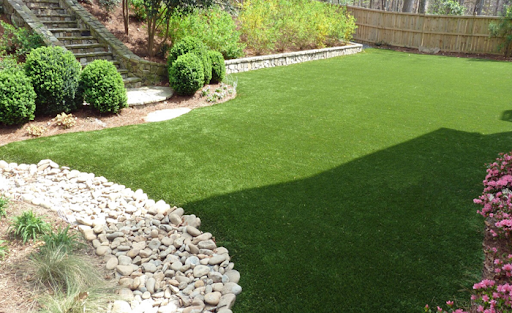Nothing is flawless, as we are all aware. However, it’s much more difficult to discuss the “advantages and disadvantages” of artificial turf than it used to be. There simply aren’t as many disadvantages as there formerly were. Nonetheless, we think that every prospective customer should be fully informed before selecting whether or not artificial grass is the appropriate choice for them.
Artificial grass has been utilized in athletic facilities and to replace real grass lawns on residential and commercial properties for decades. Because fake grass does not require watering, it is especially well-suited for locations that endure drought. Let’s read, what else can synthetic turf do for you?
Advantages of artificial turf
- Saves water: The state’s water restrictions continue to be tightened. Artificial grass simplifies compliance by significantly decreasing water consumption without jeopardizing the aesthetic criteria established by homeowners groups. Conserving water is not only environmentally friendly; it is also extremely cost-effective.
- Non-toxic: Artificial grass is manufactured without the use of any toxic elements.
- Non-allergenic: Artificial grass does not grow.
- There are no noxious chemical residues: Artificial turf does not require herbicides, pesticides, or fertilizers to maintain its beauty and pest-free status. This is both safer for your family and the environment.
- Durability: Artificial turf in denver is made of incredibly resilient materials that can survive practically any form of torture. Dig-resistant for dogs and varmints, extremely stain- and fade-resistant, and will not fray at the edges.
- More secure surface: Natural grass can develop dips and humps, which can result in injuries when children (as well as adults and dogs) trip while running and playing. Artificial grass’s surface is always uniformly smooth.
- Profitability: Artificial grass of superior quality pays for itself in a matter of years, as it eliminates the cost of continuing lawn care. Following that, it’s all about saving. Additionally, a lovely synthetic grass lawn adds value to your home throughout the resale process.
Disadvantages of artificial turf
There are a few potential disadvantages to artificial turf:
- The heat generated at the surface: Since artificial turf retains more heat than natural grass, it may feel warm to the touch. Certain types of infill can also contribute to an increase in surface temperature.
- The danger of Fire: Although artificial grass does not catch fire, it can melt if something hot, such as hot charcoal, is dropped on it or if it is exposed to intense reflected sunlight from a window. However, artificial grass is repairable.
- A build-up of odor: As with natural grass, artificial turf in Denver messes is not cleaned up promptly, they will fester. Additionally, certain types of infill are prone to absorbing scents.
- Concerns about toxic run-off: Previously, many expressed worry that water runoff from crumb rubber infill could be detrimental to families, pets, and the environment. Years of scientific research have revealed only trace amounts of harmful residue, and there are various alternative filler materials available today.
Perhaps the most critical point to remember as you weigh the advantages and disadvantages of artificial turf is that not all fake grass is made equal. The quality of the product and competent installation will ultimately decide how well and how long your lawn performs. Additionally, superior items are backed by superior warranties, providing added peace of mind.
Read more interesting articles at Piticstyle


